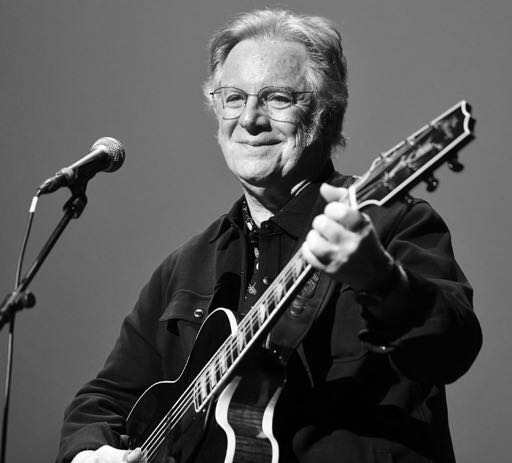
JOHN SEBASTIAN
Over four decades the contributions of John Sebastian have become a permanent part of our American musical fabric. His group The Lovin’ Spoonful played a major role in the mid-’60s rock revolution, but what leader, singer and songwriter Sebastian had in mind was actually a counter-revolution. “We were grateful to the Beatles for reminding us of our rock & roll roots,” John explains, “but we wanted to cut out the English middlemen, so to speak, and get down to making this new music as an ‘American’ band.”
This the Lovin’ Spoonful did like nobody before or since, putting their first seven singles into the Top 10. This was unprecedented, and utterly unthinkable at the height of Beatlemania. At first they’d taken older material from blues, country, folk and jug band sources – what we now term “roots music” – and made it sound modern. Then, in a series of original songs composed and sung by John Sebastian, they did the reverse, creating thoroughly modern music that sounded like it contained the entire history of American music. Which it did.
You know the songs by heart: “Do You Believe In Magic?” “You Didn’t Have To Be So Nice.” “Daydream.” “Younger Girl.” “Did You Ever Have To Make Up Your Mind?” “Summer In The City.” “Rain On The Roof.” “Nashville Cats.” “Six O’Clock.” “Darling Be Home Soon.” “Younger Generation.” These songs did more than simply answer the British invasion, they carried the musical tradition into the future. This music had an immediate and indelible impression on the public consciousness, but John Sebastian was already a name well-known to the cognoscenti. He was born March 17, 1944 in New York City. His father was a noted classical harmonica player and his mother a writer of radio programs. Regular visitors to the family’s Greenwich Village home included Burl Ives and Woody Guthrie, so it was no surprise when young John became a fan of, and then a participant in, the folk music revival that swept the nation in the late ’50s
Making his bow as a member of the Even Dozen Jug Band, his skills on guitar, harmonica and autoharp soon made him a sought-after accompanist on the Village folk scene, working with Fred Neil, Tim Hardin, Mississippi John Hurt, Judy Collins, Bob Dylan and many others.
So the Lovin’ Spoonful was not his first act, and it certainly wasn’t its last. After leaving the group he founded, he bore witness to another turn of the musical zeitgeist with his performances at massive festivals like Woodstock and its English equivalent the Isle of Wight. He had been involved in music for films (most notably Francis Ford Coppola’s “You’re A Big Boy Now” and Woody Allen’s “What’s Up Tiger Lily”) and Broadway, but when producers of a TV show called “Welcome Back Kotter” commissioned a theme song in 1976, Sebastian’s “Welcome Back” became a chart-topping solo record.